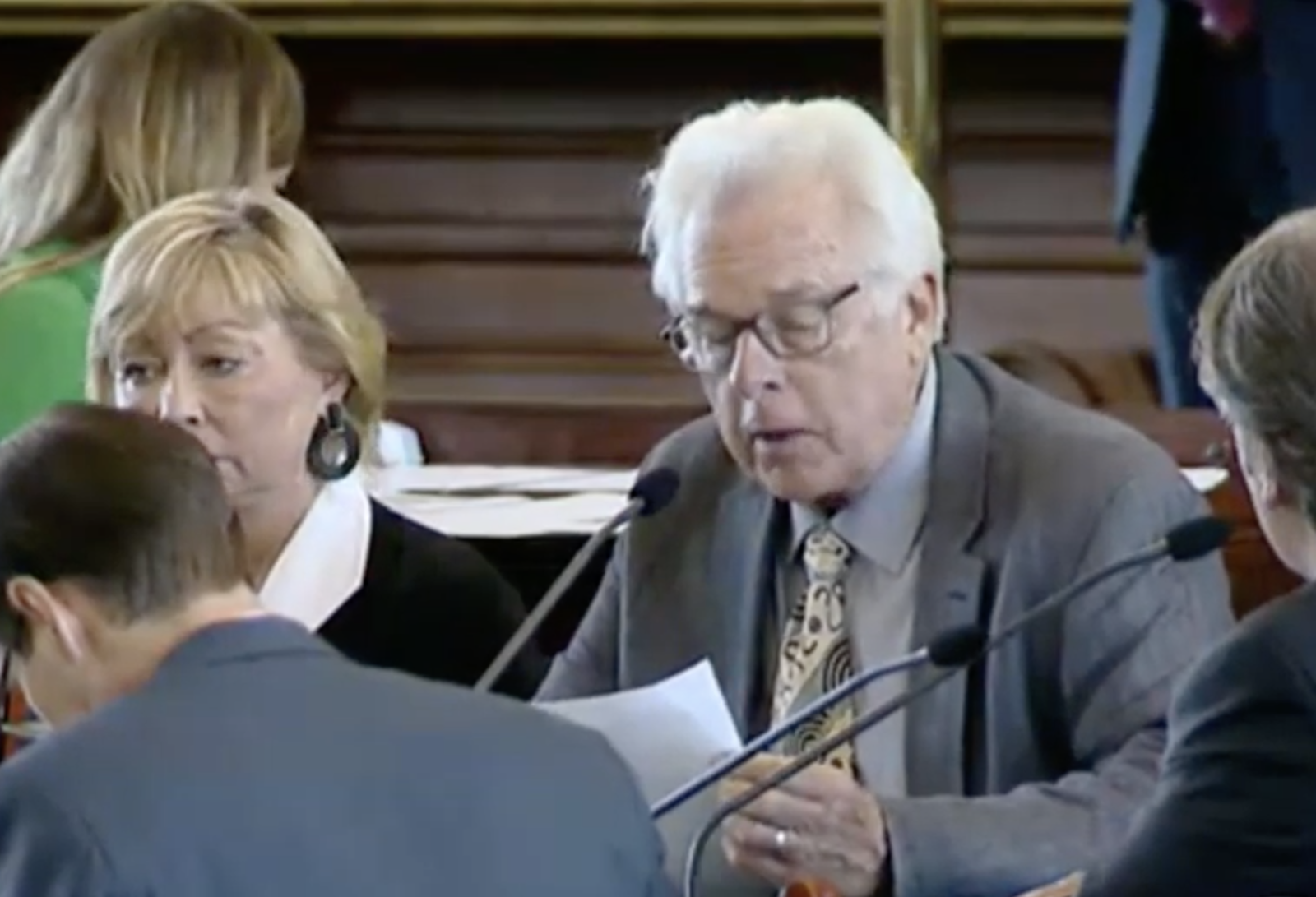


Wesley J. Smith Testifies Before Texas State Senate Against Futile Care
Discovery Senior Fellow Wesley J. Smith appeared before the Texas State Senate Committee on Health and Human Services to advocate in favor of SB2089. The purpose of the bill is to improve Texas’s medical futility provisions and to make end of life healthcare disputes between patients, providers, and their families cooperative rather coercive, which Smith currently believes to be the Read More ›
Euthanasia Zealots Push Starvation as ‘Death with Dignity’
It’s getting very dark in euthanasia-land. Not content with legalizing assisted suicide for the terminally ill in six states plus the District of Columbia — with Canada, Belgium, the Netherlands, Luxembourg, and Colombia allowing lethal jab euthanasia — and unsatiated with Switzerland’s suicide clinics to which people from around the world attend — the so-called “death with dignity” movement now is pushing self-starvation as a splendid way to die. Read More ›
Transhumanist Bill of Wrongs
Transhumanists have seen the future and it is authoritarian. More specifically, it is both authoritarian and anti-human. To make matters even worse, transhumanism would coercively bankrupt the world economy. Beyond that, it’s a pipe dream that threatens venerable Western values. What’s not to like? For those who may not know, transhumanism is an increasingly influential futuristic social movement that flowed Read More ›
A Gruesome Plan
The Hippocratic Oath is dead. “Do no harm” medicine is fast becoming extinct. Contemporary health care is increasingly under the sway of a utilitarian bioethics that makes the elimination of suffering the prime directive—to the detriment of traditional standards of medical morality that deem all human life equally worthy of care and protection. The prestigious New England Journal of Medicine has been …
Behind the Curtain of Assisted Suicide Advocacy
The United States assisted suicide movement claims that it wants only a limited “reform” of law and medical ethics, restricting what it euphemistically calls “aid in dying” to competent adults with terminal illnesses for whom nothing else can be done to alleviate their suffering. But this claim isn’t true. Currently, no law permitting doctors to write lethal prescriptions mandates any Read More ›
Obliged to Kill
A court in Ontario, Canada, has ruled that a patient’s desire to be euthanized trumps a doctor’s conscientious objection. Doctors there now face the cruel choice between complicity in what they consider a grievous wrong—killing a sick or disabled patient—and the very real prospect of legal or professional sanction. A little background: In 2015, the Supreme Court of Canada conjured Read More ›
The War on the Hippocratic Oath
I will use treatment to help the sick according to my ability and judgment, but never with a view to injury and wrong-doing. Neither will I administer a poison to anybody when asked to do so, nor will I suggest such a course. Similarly, I will not give to a woman a pessary to cause abortion. —The Hippocratic Oath The Read More ›
The Deadly Legacy of Eugenics
We’ve seen it happen: A new assault on the sanctity of human life appears—say, infanticide being promoted in a major bioethics journal, or officials in Iceland bragging that no children with Down syndrome are born there, thanks to prenatal genetic screening—and some horrified opponents respond in horror, “That’s what the Nazis did!” It’s an easy accusation to wield, but rarely Read More ›
Joseph Fletcher’s Dark Dreams Becoming Our Reality
Joseph Fletcher (1905–1991) was one the most influential philosophers and bioethicists of the twentieth century. His advocacy blazed the path for many of the radical social transitions we are experiencing today. He gained fame as the prime proponent of “situational ethics,” popularly known as social relativism. But his work in bioethics eroding the sanctity of human life and promoting a Read More ›